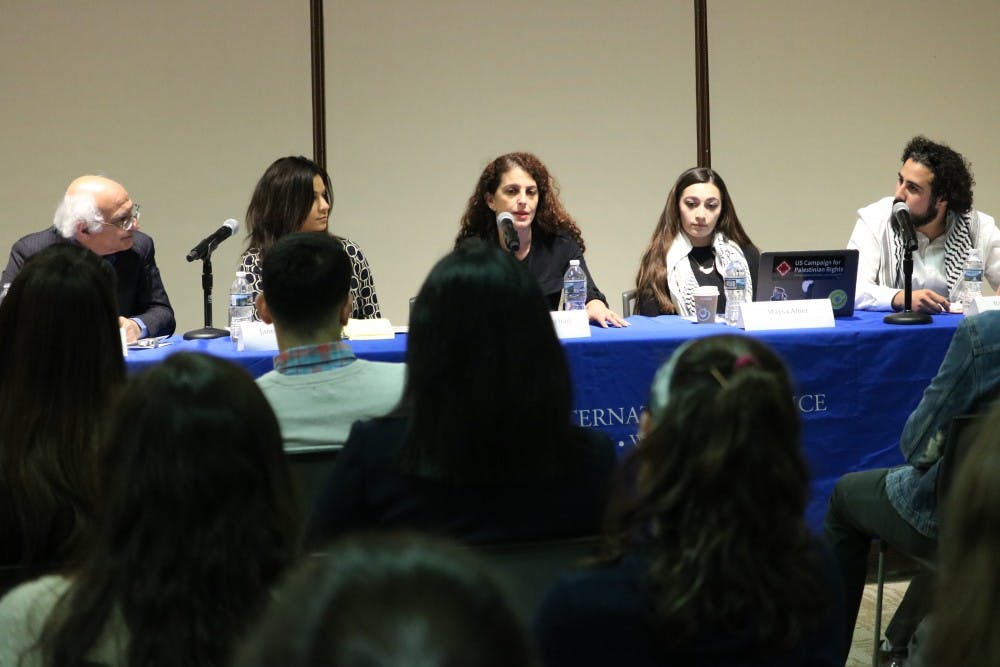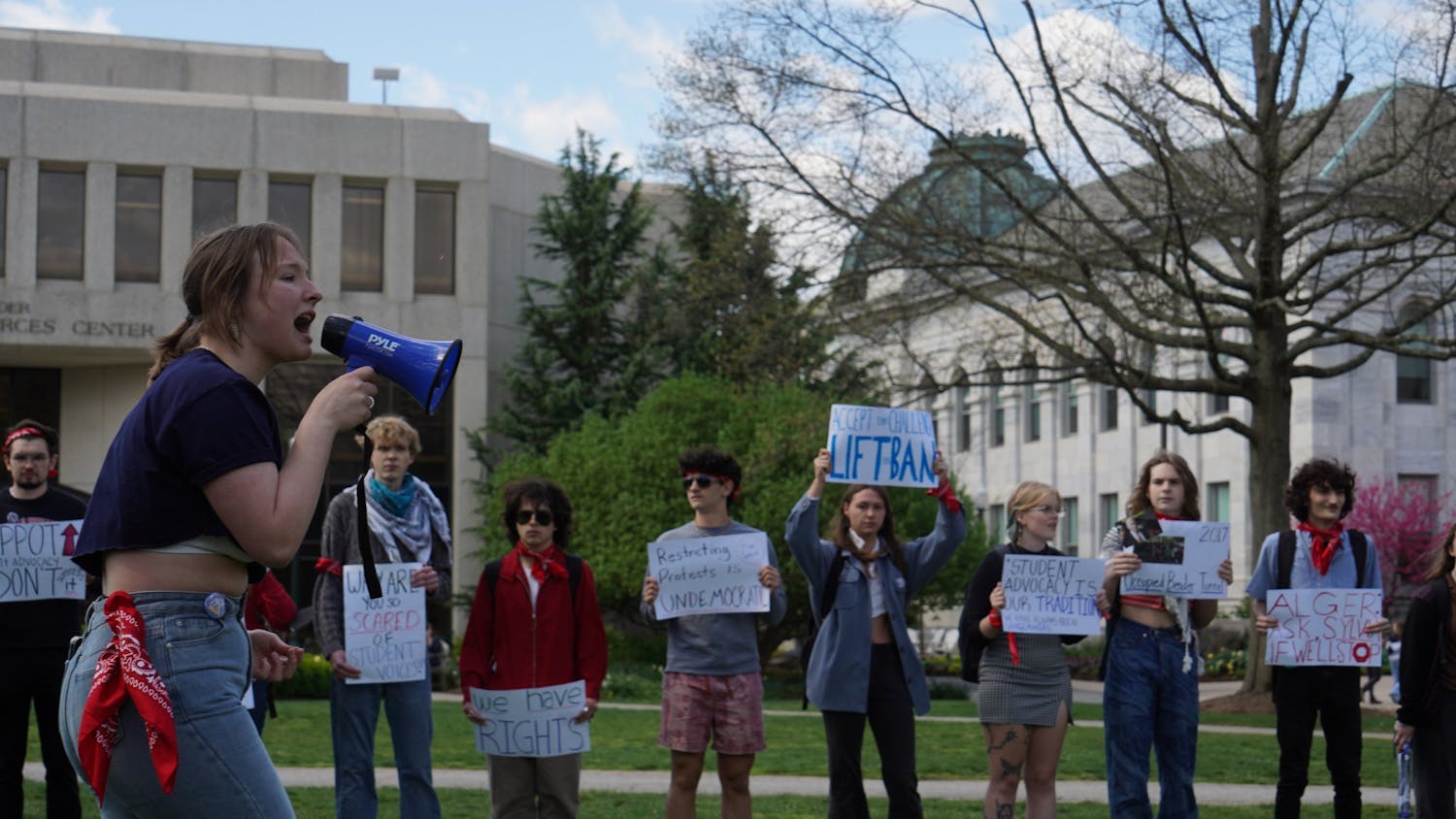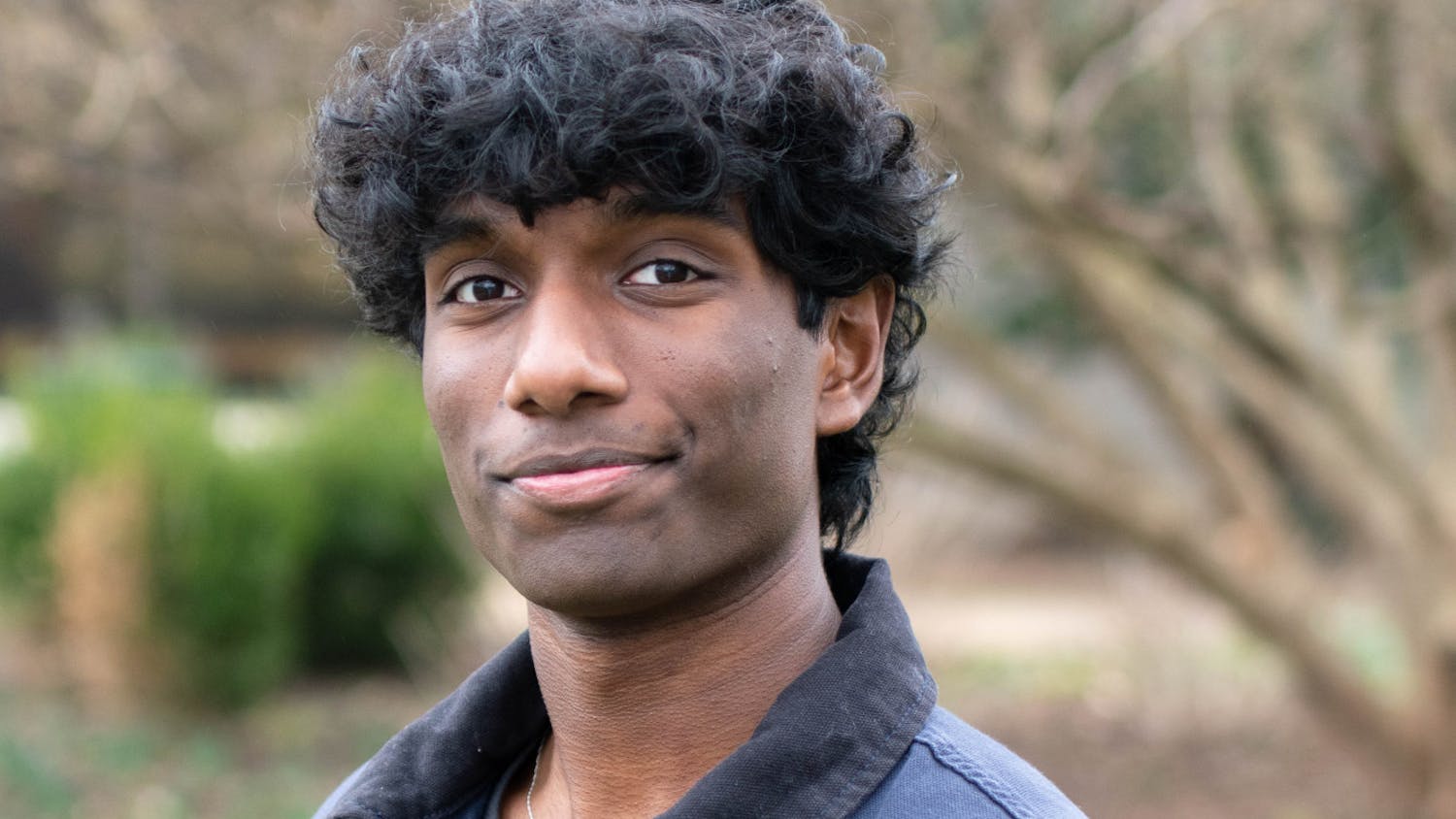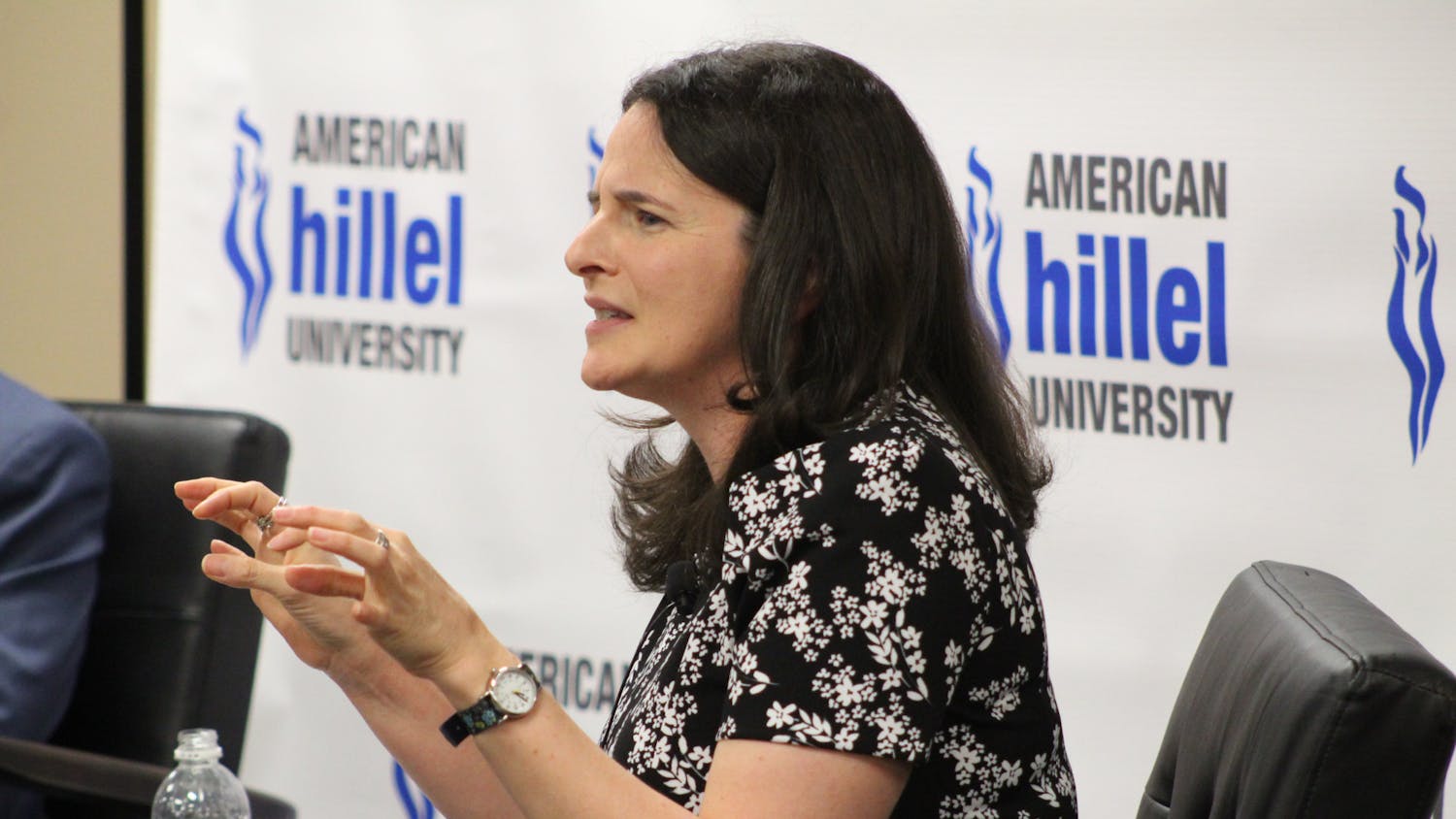No Lost Generation, a club dedicated to bringing awareness and raising funds for refugees around the world, held a panel on Oct. 17 featuring descendants of Palestinian refugees who told their stories for the first time.
Saphia Abouelenein, NLG’s director of internal management, was one of the key organizers of the panel.
“I wanted to uplift the voices of unheard refugee communities and shed light on Palestinians,” Abouelenein said.
The panel featured students from the D.C. area, including AU senior Maysa Amer, the President of AU’s Students for Justice in Palestine, and Rasheed Ahmed, a student at George Mason University who works for the charity Helping Hand for Relief and Development.
In addition to student voices, the event also featured Janeen Rashmawi, a public affairs officer at the Palestinian Liberation Organization General Delegation to the U.S., and Randa Serhan, a Palestinian political sociologist and refugee herself. The panel was moderated by AU’s Muslim chapman, Imad-ad-Dean Ahmad.
Abouelenein wanted the event to deviate from the usual discussion over the Palestinian-Israeli conflict by humanizing the issue and discussing the identities of Palestinian refugees.
“I wanted to talk about their identities as refugees because they don’t fit the exact definition of a refugee,” Abouelenein said. “There’s an image in the media about what a refugee is, so we wanted to expand on what that is.”
Panelists discussed a variety of issues, ranging from experiences of the panelists with the Palestinian exodus of 1948 to their views on right of return, the belief that Palestinian refugees should be able to return to their former homelands in Palestine.
Each of the panelists had different familial backgrounds and experiences with the exodus of 1948. For example, Ahmad’s grandparents were Palestinian refugees who fled in 1948, with his father’s family settling in Qatar and his mother’s family settling in Venezuela. Serhan was a third generation refugee whose uncle had his family home bombed, forcing her and her family to flee to Lebanon, Kuwait and the U.S.
Although each of the panelists had different stories and connections to Palestine, each said they were deeply affected by their heritage and believed it played a large role in how they lived and worked. Amer said her identity as a Palestinian-American pushed her to pursue a career in international relations and human rights.
“My identity has taught me to appreciate every opportunity that has come my way, such as the opportunity to pursue my education,” Amer said. “The hyphenated identity, Palestinian-American, is juxtaposed onto me and that has made me want to dig deeper into what is ‘Palestinian-ness.’”
Serhan said there have not been any resolutions made by the United Nations on resettlement, only agreements regarding reparations. Due to this, the right of return remains a controversy and Palestinian refugees are unable to come back to their homeland. The solution for implementing right of return, Rashmawi said, is to give all Palestinian refugees, regardless of generation or location, the option to return home.
“They need to make that decision for themselves whether they want to return home or not,” Rashmawi said. “There also needs to be full recognition and a formal apology for what happened to Palestinian refugees that were displaced.”
Rashmawi, along with the other panelists, agreed that enforcing laws regarding right of return would be difficult and take time. The panelists were hopeful for the future, and when asked what they would do if Palestine was liberated and they were able to resettle there, Ahmed had a simple idea.
“Plant an olive tree,” Ahmed said. “I would remind myself that this is all that we have worked for.”





